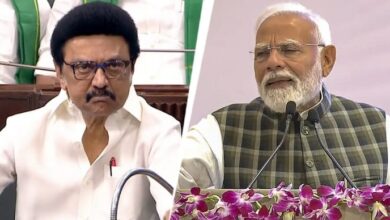
Former US President Donald Trump’s recent announcement of reciprocal tariffs—including 26% on Indian imports, 46% on Vietnamese, and a massive 54% on Chinese goods—has led to major shifts in global tech export strategies.
Tech giants like Apple and Samsung have responded swiftly by increasing exports from their India-based manufacturing units. Both companies aim to cushion the impact of tariffs by diverting production and shipping operations to India.
📱 Apple Steps Up India Output
Apple, which has significantly expanded its manufacturing presence in India over the past few years, is now shipping a greater volume of Made-in-India iPhones to the US. This move not only diversifies its supply chain but also reduces dependency on Chinese production amid rising trade tensions.
The company has already established key partnerships with Indian manufacturers, enabling seamless assembly and export operations. Sources confirm a strategic increase in shipments to North America ahead of the festive season.
📲 Samsung’s Vietnam-to-India Shift
Samsung, another global player heavily invested in Vietnamese manufacturing, is now reconsidering its export channels. Due to the higher tariffs on Vietnamese imports, Samsung is temporarily shifting output to its Indian plants, primarily in Noida, to meet US demand.
The South Korean giant sees India as a strategic fallback, leveraging its existing infrastructure and skilled labor to offset losses.
📊 India’s Export Numbers Surge
India’s smartphone exports grew 6% year-on-year in 2024, with Apple and Samsung accounting for 94% of outbound shipments. Analysts suggest that this trend will further accelerate, positioning India as a reliable tech export powerhouse.
The Indian government’s Production Linked Incentive (PLI) scheme, favorable tax environment, and rising demand for supply chain diversification have made it an attractive destination for global electronics firms.
🌐 Global Implications
While India’s tariff (26%) under Trump’s reciprocal policy is lower compared to China and Vietnam, it still urges firms to optimize costs. India’s growing manufacturing capacity and policy support are now viewed as crucial to maintaining trade competitiveness with the US.
Experts call for enhanced India-US trade negotiations to minimize friction and encourage sustained growth in electronics exports.









